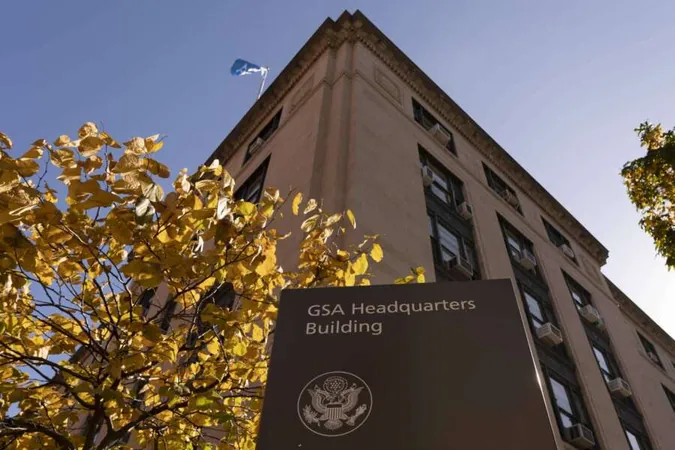
Unlocking Ageless Minds: How Music Fights Brain Decline
2025-09-01
Author: Jessica Wong
A Melody for Your Mind: The Lifelong Benefits of Music
Imagine a simple hobby that not only brings joy but also wards off the effects of aging. Learning to play a musical instrument has been unveiled as a powerful guardian of cognitive health, shielding our brains against the inevitable decline that comes with time.
Research Revelations
A groundbreaking study led by researchers from Canada and China has found that older adults who have spent years immersed in music are significantly better at understanding speech in noisy environments, such as bustling cafés. Their cognitive prowess mirrors that of younger individuals, as they require less mental energy to sift through distractions—an incredible advantage as we age.
Cognitive Reserve: The Brain's Backup System
Years of plucking strings or tapping keys enrich a person’s 'cognitive reserve'—a crucial backup system within the brain. This reserve enables aging minds to operate with the efficiency of youth, even as time marches on.
Musical Training: Connections that Matter
Engaging with music enhances the links between brain regions responsible for hearing, movement, and speech. These strengthened connections streamline our ability to process sounds, particularly when trying to pick out a voice in a noisy crowd—a common challenge as we age.
Aging vs. Expertise: The Unveiling of Myths
The study toppled the myth that older brains must work overtime to keep pace with cognitive decline. Regularly practicing an instrument—about 12 hours a week—can build a resilient mental reserve, minimizing unnecessary strains on our brains.
Insights from Leading Experts
Dr. Yi Du from the Chinese Academy of Sciences noted, 'Just like a finely tuned instrument, older musicians maintain their sharpness through years of disciplined practice.' This statement resonates with findings revealing that older musicians exhibit brain patterns akin to younger non-musicians.
Inside the Study: Participants and Findings
Involving 50 participants, the study included 25 older musicians with an average age of 65, alongside another 25 older adults who never practiced an instrument. The fascinating twist? Younger non-musicians in their 20s were also included to compare brain activity.
Not Just a Hobby: The Path to Future Therapies
The researchers believe their groundbreaking findings could pave the way for innovative therapies aimed at preventing dementia, advocating for musical training among seniors as an effective intervention.
It's Never Too Late: Late Starters Thrive Too
Supporting these findings, a recent study by Kyoto University revealed that even those who begin playing instruments in their 70s see improvements in cognitive tests, particularly in verbal memory over time. Consistency is key—those who continued to play performed the best.
Final Note: Strumming Your Way to a Sharper Mind
Incorporating music into our lives may not only enrich our souls but also safeguard our cognitive health for years to come. So, why not pick up that old guitar or dust off your piano? It just might be the antidote to aging gracefully.



 Brasil (PT)
Brasil (PT)
 Canada (EN)
Canada (EN)
 Chile (ES)
Chile (ES)
 Česko (CS)
Česko (CS)
 대한민국 (KO)
대한민국 (KO)
 España (ES)
España (ES)
 France (FR)
France (FR)
 Hong Kong (EN)
Hong Kong (EN)
 Italia (IT)
Italia (IT)
 日本 (JA)
日本 (JA)
 Magyarország (HU)
Magyarország (HU)
 Norge (NO)
Norge (NO)
 Polska (PL)
Polska (PL)
 Schweiz (DE)
Schweiz (DE)
 Singapore (EN)
Singapore (EN)
 Sverige (SV)
Sverige (SV)
 Suomi (FI)
Suomi (FI)
 Türkiye (TR)
Türkiye (TR)
 الإمارات العربية المتحدة (AR)
الإمارات العربية المتحدة (AR)